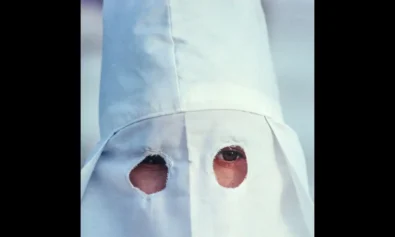Perhaps nothing was more telling of the current state of political stability in Libya than the decree by President Mohammed el-Megaref on late Saturday evening ordering the disbanding of “illegitimate” militias that didn’t acquiesce to government authority.
The move was designed to channel public anger against the country’s many powerful armed groups following the terrorist attack that killed the U.S. ambassador.
The Sept. 11 assault on the U.S. mission in Benghazi resulted in the deaths of Ambassador Chris Stevens and three other Americans. The incident also sparked an angry backlash among American officials, as well as Libyans weary of the many armed groups that continue to run rampant nearly a year after the end of the country’s civil war.
The Libyan Army on Sunday said that it had raided several militia outposts operating outside government control in the capital of Tripoli, while in the east, the militia suspected in the U.S. Consulate attack said it had disbanded on orders of the country’s president.
On the day before, some 30,000 residents of Benghazi – the cradle of the Libyan revolution last year that toppled dictator Moammar Gadhafi – staged a mass demonstration against the militias before storming the compounds of several armed groups in the city in an unprecedented protest to demand the militias dissolve.
The government has taken advantage of the popular sentiment to move quickly in its effort to restore order. In a statement published by the official LANA news agency, the military asked all armed groups using the army’s camps, outposts and barracks in Tripoli, and other cities to hand them over. It warned that it will resort to force if the groups refuse.
The government faces a number of obstacles, however, as it needs the most powerful militias on its side to help disband the rest. It also relies on militias for protection of vital institutions and has used them to secure the borders, airports, hospitals and even July’s election.
Since Gadhafi’s capture and killing, the government has brought some militias nominally under the authority of the military or Interior Ministry, but even those retain separate commanders and often are only superficially subordinate to the state. El-Megaref told reporters late Saturday that militias operating outside state authority will be dissolved, and that the military and police will take control over their barracks.
But it remains unclear if the government has the will – or the firepower – to force the most powerful militias to bow to its authority.
Ansar al-Shariah, which is the most feared militia in eastern Libya, is suspected in the Sept. 11 attack on the U.S. Consulate and was not deemed legitimate by the state.
Rather than join the military, the Ansar militia said it disbanded on Sunday.
“Now, we have only light personal weapons,” said Youssef Jihani, a senior figure in the group.
He said the group turned over heavier weapons to Libya Shield, a major militia in Benghazi on which authorities rely.
The militias were born of desperation as the Libyan people took up arms to fight Gadhafi’s regime. Organized largely along local lines with a slew of heavy weapons, many pay little attention to national authorities and have been accused of acting like gangs and carrying out extrajudicial killings. Islamist militias often also push their demands for enforcement of strict religious law.


